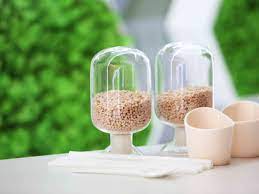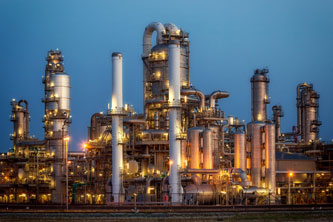Green tie-ups: Chandra Asri/Ecovance to collaborate on biodegradable plastics; Kent awarded FEED contract for ExxonMobil’s waste recycling plant

Indonesian petchem firm PT Chandra Asri Petrochemical Tbk (Chandra Asri Group) has signed a memorandum of understanding (MoU) with Ecovance Co Ltd, a South Korean-based company specialising in biodegradable materials which partly owned by SKC group, to study the potential for strategic collaboration in the biodegradable plastic materials, polybutylene adipate terephthalate (PBAT) and polybutylene succinate (PBS).
Through this MoU, both parties agree to focus on application development and customer evaluation, developing partnerships to create a biodegradable plastic ecosystem, and exploring investment opportunities in environmentally friendly materials and solutions.
The biodegradable material project is one of Chandra Asri Group's efforts to implement the corporate future roadmap in transforming its business to become the frontier of the green chemical industry in Indonesia.
It adds that a study will also be conducted to determine the feasibility of biodegradable materials in the Indonesian market by leveraging Chandra Asri Group's knowledge and experience in polymers and plastics, combined with Ecovance's expertise in biodegradable materials technology.
Biodegradable plastic is seen as a green alternative to plastic due to its lower energy consumption and produces less emission. This advantage is in line with Chandra Asri Group's commitment to supporting Indonesia's Long-Term Strategy for Low Carbon and Climate Resilience 2050 (Indonesia Vision 2050 LTS-LCCR).
President/Director of Chandra Asri, Erwin Ciputra, said "Chandra Asri Group welcomes the collaboration in developing eco-friendly material to fulfil customers demand who are currently seeking more environmentally friendly products. This initiative will lay the pathways for us to becoming a leading of sustainable business in Indonesia by developing a business model with SKC-Ecovance based on joint market study output. We plan to allocate technical and marketing resources to the utmost for market development and explore investment opportunities for ESG business.”
PBAT is a fossil-based biodegradable plastic that can be converted into water, carbon dioxide (CO2), and biomass over time with the help of microorganisms. PBAT is commonly used as packaging materials such as shopping bags, food wraps, trash bags, compost bags, and hygiene products. While PBS is a bio-based biodegradable plastic with comparable mechanical properties with high-density polyethylene (HDPE) and isotactic polypropylene (PP). PBS application is usually for food packages, bottles, bags, disposable cutlery, and compost bags.

In other news, UK engineering firm Kent says it has been appointed as the Front-End Engineering Design (FEED) contractor for potential expansion of US materials firm ExxonMobil’s advanced recycling facilities.
Kent will provide FEED services for potential new units across seven sites under this advanced plastics recycling global portfolio program, based on the success of a trial unit in Baytown, Texas, designed by Kent during 2021 and 2022. The new such units are under assessment at ExxonMobil facilities located in Baytown (Texas), Beaumont (Texas), Baton Rouge (Louisiana), Joliet (Illinois), Sarnia (Canada), Rotterdam (the Netherlands) and Antwerp (Belgium).
The first unit at Baytown started up late last year as one of the largest advanced recycling facilities in North America.
Tush Doshi, COO at Kent, said: “We are proud to be associated with this project to complete FEED services for ExxonMobil’s advanced recycling projects. The win is a testament to the fantastic work we have been doing in the field of recycling waste. It is a milestone project, and this exciting program will demonstrate how the recycling process is evolving to become more efficient and pave the way to a better future for our planet.”
By turning difficult-to-recycle plastic waste back into raw materials that can be used to make new plastic and other valuable products, ExxonMobil’s advanced recycling technology can divert plastic waste from landfill or incineration and help to meet customer goals for circularity.
(PRA)
Subscribe to Get the Latest Updates from PRA Please click here
©2023 Plastics and Rubber Asia. All rights reserved.

©2023 Plastics and Rubber Asia. All rights reserved.
Home Terms & Conditions Privacy Policy Webmail Site Map About Us
















